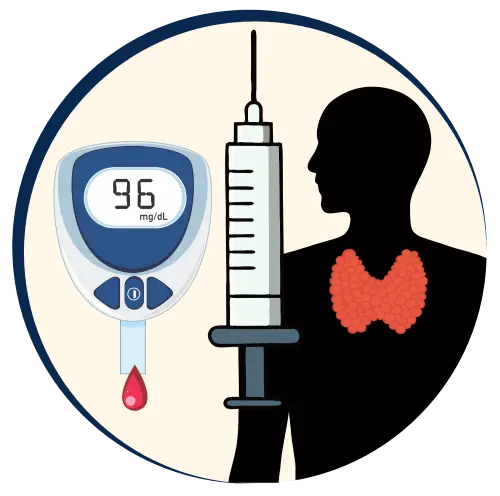Understanding Diabetes Nutrition
Proper nutrition is the cornerstone of effective diabetes management. The right food choices can help stabilize blood sugar levels, reduce complications, and improve your quality of life.
Blood Sugar Stability
Learn how different foods affect your glucose levels and timing strategies for optimal control.
Balanced Macronutrients
Understand the ideal ratio of carbohydrates, proteins, and fats for diabetes management.
Meal Timing
Discover the importance of consistent meal timing and portion control.
